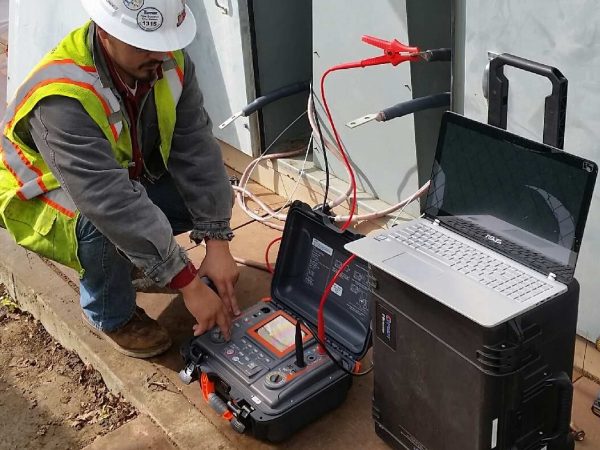12
Jul

Electrical equipment and installations need to comply with insulation resistance specifications to make sure they operate safely. Whether it’s the connection cables, motors, and generators or the sectioning and protection equipment – electrical conductors are insulated with materials that feature high electrical resistance to limit the flow of current happening outside the conductors. Over time, the quality of the insulation materials can change as a result of the stresses which impact the equipment. These changes reduce the resistivity, which can increase leakage currents leading to increased risk of incidents.
Insulation resistance is measured using insulation testers, and if you don’t have one for your facility, it’s high time you got one. There are a few important factors to consider when buying an insulation tester in order to make sure the one you get is capable of testing all the equipment safely.
First and foremost, you need to consider the equipment you’ll be testing. Make a list and write down the nominal voltage rating of the equipment and consider how many insulation resistance tests you’ll be performing on a yearly basis. The normal voltage will help you determine the voltage of the insulation tester, and the number of tests you’ll be performing will influence your decision regarding the tester’s quality, convenience features, and durability.
For instance, if the nominal voltage of your equipment is in the 3-4kV range, you’ll want a5kV insulation tester. The reason for wanting a 5kV insulation tester (even though the nominal voltage rating of your equipment is slightly lower) is safety. That being said, you generally want a tester with 10-20% more test voltage than the nominal voltage rating of the equipment you’re testing.
Then, you have to consider the environment in which the tests will be performed. For instance, if you’re testing in an industrial plant, you’ll need a more durable tester than you would need if you were testing in a shop. Additionally, you’ll have to consider whether the tester will be primarily used for preventative maintenance, troubleshooting, or maybe both. Some testers are small and portable, while others are larger and not as portable.
And lastly, consider the type of insulation tests you’ll be performing. If you’re only going to need simple insulation testing, then you might not want an insulation resistance tester at all, since a simple multimeter can read resistance as well. Further, when considering an insulation tester, you should consider your experience level, because, at the end of the day, a test instrument is only as good as the experience and knowledge of its operator.